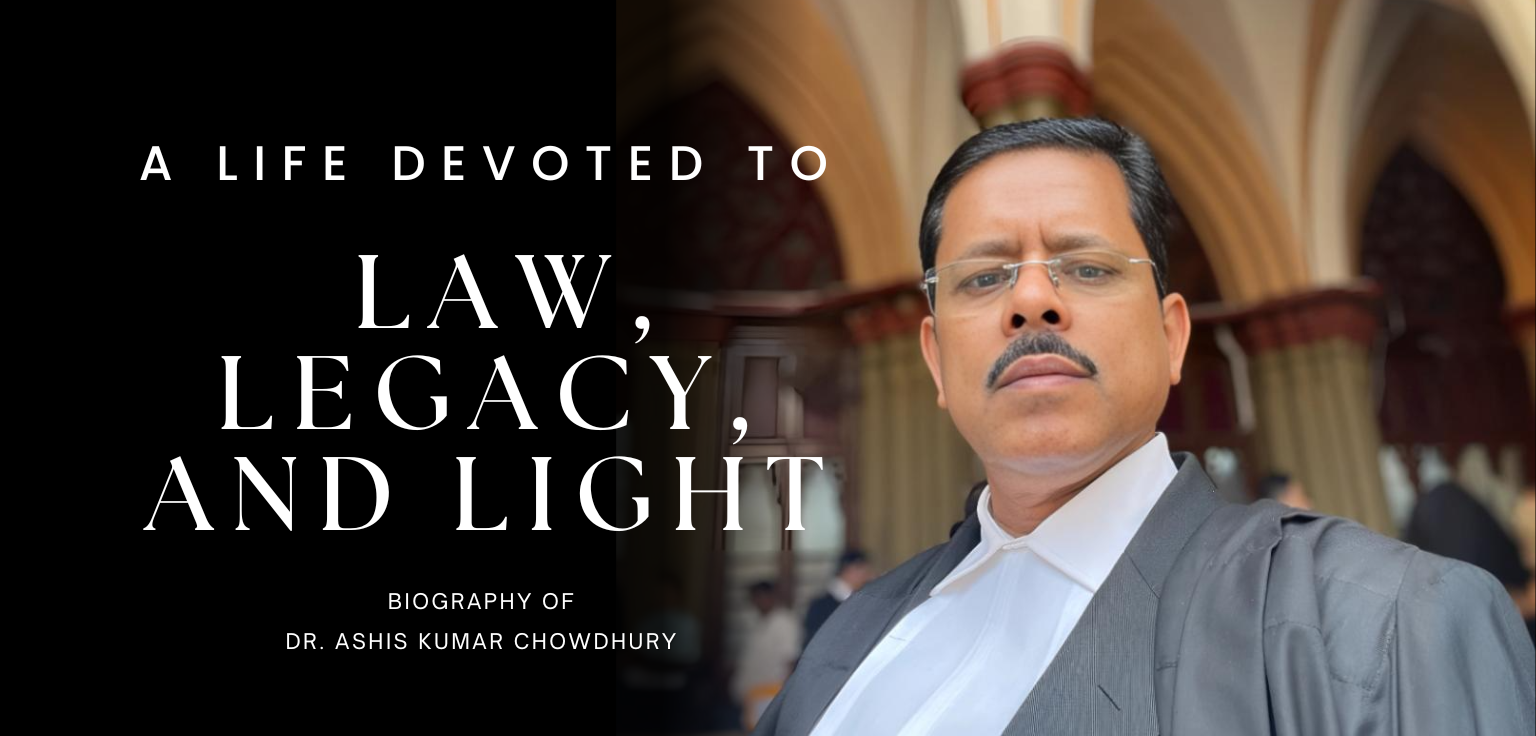
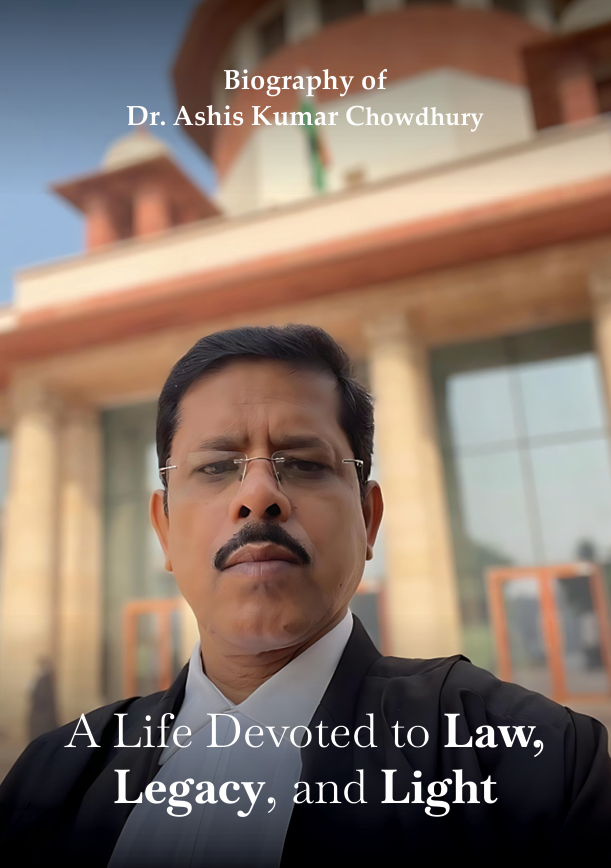
“Justice is not merely a verdict; it is the echo of a soul that dares to speak for the unheard, stand for the unseen, and rise for the forgotten.”
Dedication
This biography is lovingly dedicated to the silent pillars of strength who shaped the soul of a boy destined to become a protector of justice.
To his mother, whose hands bore the calluses of sacrifice and whose heart never knew rest—yet found joy in building a world her children could rise from. In the absence of wealth, she offered him something rarer—unconditional love and unwavering resilience.
To his father, a humble government employee, whose presence was calm yet whose values were indelible. It was he who first taught young Ashis that true service is not loud—it is consistent, principled, and done without expectation of return.
To the dusty village roads of Birbhum, which taught him that the lack of resources does not equal the lack of dreams. That greatness, when nurtured by purpose, can rise from the most forgotten soils.
To the students he mentors, the juniors he uplifts, and the litigants he stands beside—this is for every soul who found strength in his words, light in his guidance, and dignity in his defense.
And above all, this is dedicated to the people of India—those who suffer in silence, who stand in long queues for justice, who feel unheard in a system too vast—because in Dr. Ashis, they found not just an advocate, but a voice who chooses them, every single day.
PHASE 1 Building a Legacy: The Birth of Chowdhury & Associates Advocates
“Not all foundations are laid in concrete. Some are built with conviction, humility, and an unshakable resolve to serve.”
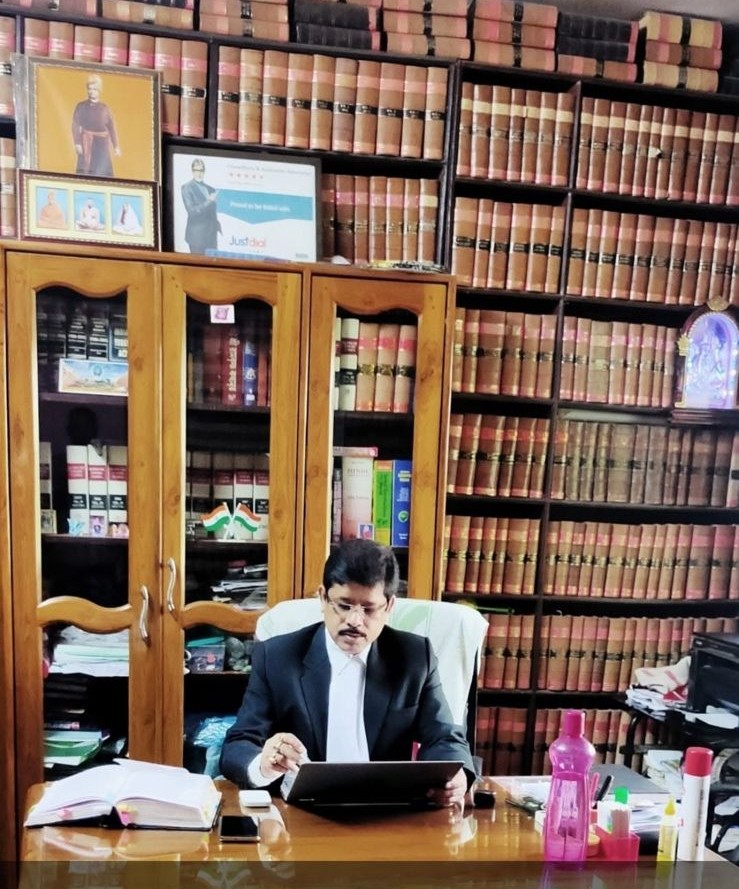
By the year 2000, just one year after formally enrolling as an advocate in the Calcutta High Court, Dr. Ashis took a step most would consider premature—but he saw it as inevitable. With a mind sharpened by law and a heart heavy with responsibility, he founded Chowdhury & Associates Advocates, a solicitor firm that would grow to become more than just a legal establishment—it would become a beacon of justice for the underrepresented.
He began this journey not with opulent offices or legacy clients, but with a vision—to create a legal space that didn’t discriminate between the influential and the invisible. The doors of Chowdhury & Associates Advocates were opened with one mission: to make justice accessible to all, regardless of their socioeconomic standing. It was a firm rooted in empathy, grown through discipline, and recognized through merit.
From day one, Dr. Ashis cultivated an environment where law was not just practiced—it was lived. He believed that a great advocate is not defined by how much he speaks, but how deeply he listens. This principle became the ethos of his chambers. Under his leadership, the firm attracted young legal minds from across the state, drawn not just by his reputation, but by his mentorship and unwavering ethics.
Over the years, Chowdhury & Associates Advocates expanded its portfolio with the same clarity and care it was founded upon. Today, the firm provides comprehensive legal services across:
Corporate & Commercial Law
Banking & Financial Law
Intellectual Property Rights
Municipality and Panchayat Governance
Real Estate, Taxation, and Regulatory Licensing
Service Law, Education Law, and Constitutional Remedies
Dr. Ashis didn’t just build a firm—he built people. His chambers became a school of integrity, and many of his juniors, once fresh graduates walking in with uncertainty, now serve as district-level judges across West Bengal. To them, he was not just a mentor but a guardian, always emphasizing that the law is not a weapon—it is a sacred tool meant to uplift, not overpower.
His leadership style was unorthodox but inspiring. While other seniors measured success in billable hours, he measured it in lives impacted and truths defended. His juniors were never treated as subordinates, but as torchbearers of a collective mission—to restore public trust in the legal system, one case at a time.
Even as his practice grew and high-profile clients began to seek his counsel, Dr. Ashis never distanced himself from the grassroots. He personally handled cases for poor litigants, often at no cost, and worked tirelessly to create legal pathways for those who otherwise had no access. His courtroom demeanor was calm but assertive, his arguments crisp but compassionate, and his reputation—unshakably rooted in honesty.
Chowdhury & Associates Advocates did not just gain recognition in the courts; it earned respect in the hearts of thousands. It became a place where law met morality, and where young advocates were not just trained to win, but taught to matter.
This first phase of Dr. Ashis’s legal life was about more than building a practice. It was about shaping a movement—a legal institution that honors not just statutes, but souls.
PHASE 2 Hallmark Cases and Public Recognition : The Courtroom as a Stage for Truth
“A courtroom is not just a space for argument. It is a crucible where courage is tested, where silence is broken, and where truth, once freed, cannot be chained again.”
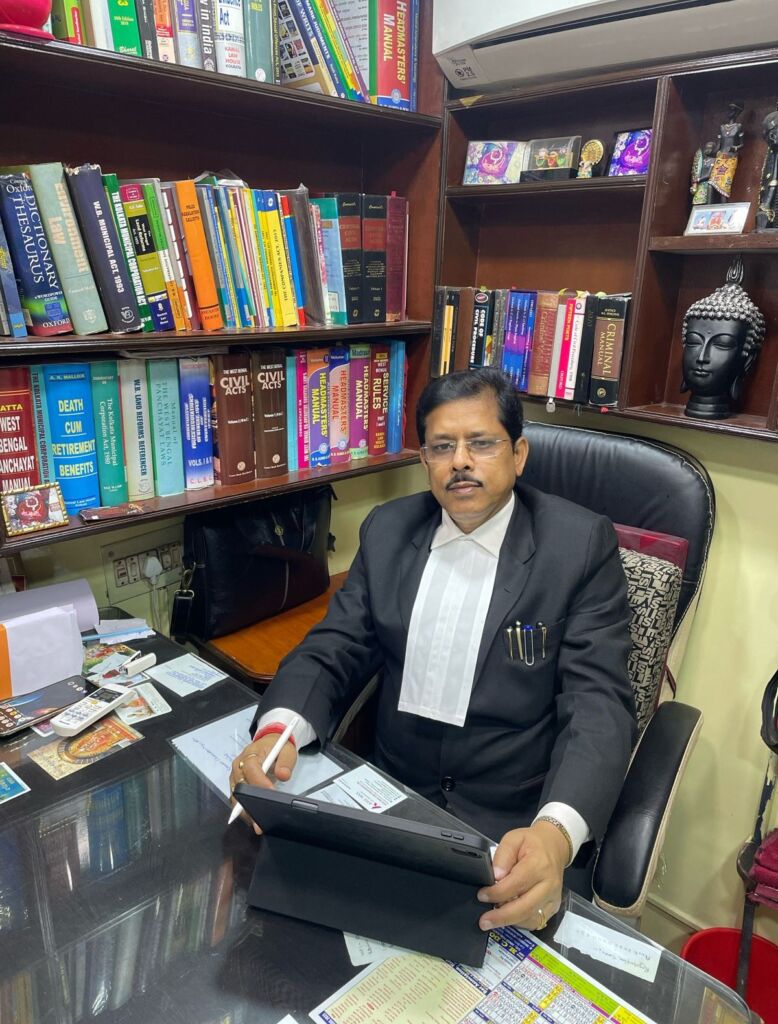
If Chowdhury & Associates Advocates was the foundation, then the courtroom victories that followed were the cathedral—each one built brick by brick with diligence, precision, and moral clarity. As Dr. Ashis’s reputation expanded, so did the complexity of the cases he undertook. But no matter how high the stakes, he approached each file with the same sincerity as he did when helping a flood-affected villager decades ago.
His command over the legal craft, coupled with a fearless heart, soon positioned him at the center of landmark litigations that tested not just the law, but the moral temperature of the nation.
Among the cases that propelled his name into public consciousness were:
The Black Magic Act Case – A case entangled in cultural beliefs, superstition, and societal reform, where he stood not only as a legal warrior but as a voice of reason in a deeply sensitive discourse.
The High-Profile Matrimonial Dispute Between Indian Cricketer Mohammad Shami and Hasin Jahan – A legal spectacle that played out under the intense scrutiny of national media. Dr. Ashis’s role was defined not by theatrics, but by balance, composure, and an unshakable commitment to procedural integrity.
The 26,000 Teachers’ Recruitment Scam – One of West Bengal’s most controversial public sector litigations, where his arguments echoed through layers of systemic corruption and demanded accountability on a mass scale.
These cases were not just professional assignments—they were social commentaries, each reflecting a larger dysfunction within systems meant to protect, educate, and uplift. And in each case, Dr. Ashis refused to be just a spectator. He entered those courts not merely as counsel, but as a man burdened with the stories of real people—people wronged, silenced, overlooked.
His brilliance wasn’t hidden in legal jargon but shone through his clarity of thought and emotional presence. Judgments delivered in these cases became landmark references, with citations across journals like:
2024 SCC Online (Cal) 7948
2023(0) Supreme (Cal) 368
2023(1) ICC 666
2024 Supreme (Online) SC 1844
2023 Supreme (Online) Cal 105
and many more, referenced nationally on Indian Kanoon and reputed legal archives.
These accolades did not inflate his ego—they deepened his responsibility.
National television media took notice. Newspapers featured his courtroom dialogues, and television debates sought his voice—but through it all, he remained grounded. Fame never became his goal; fairness did.
His growing stature also drew him into conversations at the highest levels. On several occasions, he held deliberations with the Honourable Vice President of India, Mr. Jagdeep Dhankhar, during his tenure as Governor of West Bengal. Their discussions were not about titles or awards—they were about how to strengthen the ethical foundation of the legal profession and uplift young lawyers in a system that often overlooks them.
For Dr. Ashis, public recognition was never a destination. It was a byproduct of consistency, character, and courage. While others used fame to rise, he used it to amplify the voices of the voiceless.
His courtroom presence today is marked not only by his mastery of law but by something rarer—moral authority. Judges recognize it. Peers admire it. Clients trust it.
In every case he touches, whether high-profile or humble, his motive remains unchanged: not to win in the eyes of the world, but to win in the court of conscience.
PHASE 3 Supreme Court and National Impact: Where Law Meets Legacy
“To stand in the Supreme Court is not merely to argue law—it is to confront the conscience of a nation.”
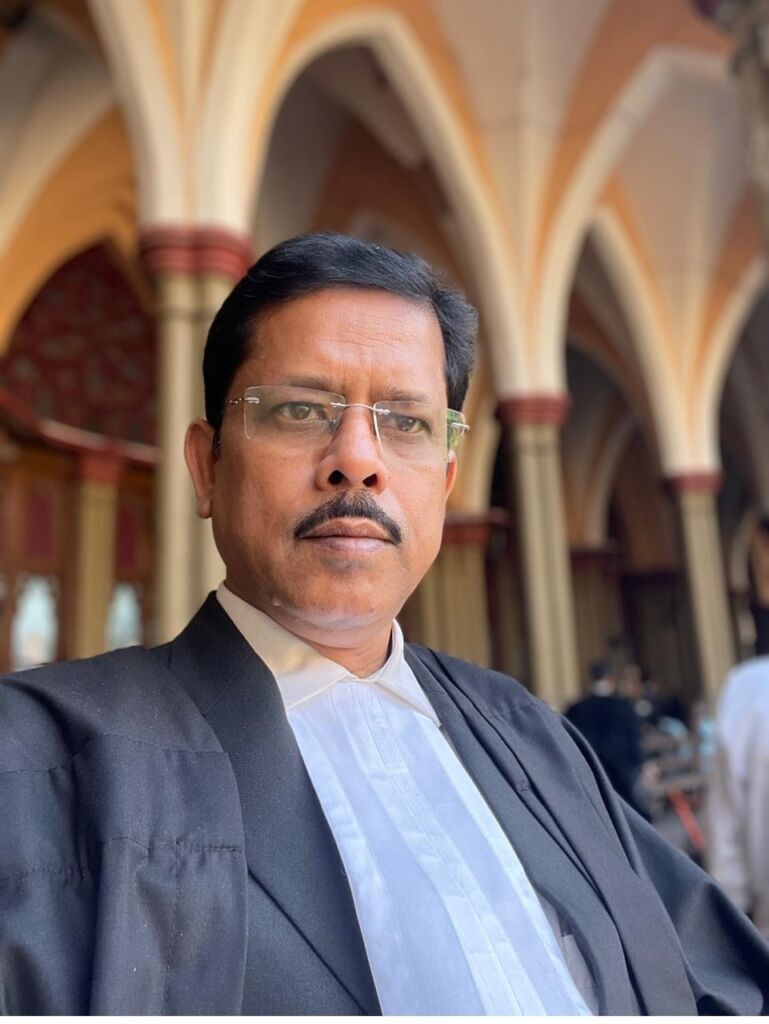
By the time his influence had rippled through West Bengal’s legal circles, Dr. Ashis was no longer just a respected advocate—he had become a trusted voice in the national dialogue on justice. His natural progression into the highest court of the land—the Supreme Court of India—was neither accidental nor abrupt. It was a journey rooted in years of ethical practice, mentorship, and a relentless pursuit of justice at every level.
The invitation to join the Supreme Court Bar Association (SCBA) was a significant milestone. It came with the endorsement and kind consideration of Senior Advocate Mr. Kapil Sibal, one of the country’s most revered legal minds. This wasn’t just a symbolic gesture—it was a recognition of Dr. Ashis’s proven merit, integrity, and commitment to the ideals that transcend legal boundaries.
At the Supreme Court, Dr. Ashis expanded his legal footprint. His arguments grew more complex, his adversaries more seasoned—but his core remained the same: clarity, courage, and compassion. He began handling matters that shaped not only individual outcomes but constitutional interpretations and policy precedents.
His appearances weren’t limited to the apex court in New Delhi. He soon became a familiar presence in the High Courts of Punjab & Haryana, as well as the Andaman & Nicobar Islands, expanding his influence across jurisdictions, geographies, and cultures. He himself is a strategic counsel always appearing against state governments to protect the common people from any discrimination, represented statutory bodies, and fought for the civil liberties of common citizens—bridging the gap between government, law, and the grassroots.
But what sets Dr. Ashis apart at the national level isn’t just the volume of cases he handles—it’s the value he delivers. His litigation spans:
Regulatory and licensing matters
Environmental law and public sector accountability
High-value real estate and infrastructure disputes
Educational and employment-related constitutional cases
And through it all, he continues to treat every matter with the same intensity he showed when helping flood victims as a teenager. Because to him, no forum is greater than the voice of the person who seeks justice.
His transition to the national stage also coincided with deeper policy-level interactions. He held multiple consultations with senior members of the legal fraternity and government leaders, offering recommendations on how to:
Protect the ethical core of the legal profession
Support young lawyers entering an increasingly competitive system
Ensure the accessibility of courts to India’s poorest citizens
Dr. Ashis’s philosophy is simple yet powerful: “The law should never feel like a fortress to the weak; it should feel like a shelter.”
In a legal culture often intoxicated by elitism and jargon, his presence in the Supreme Court remains a refreshing embodiment of clarity, humility, and moral strength. He does not merely speak the law—he humanizes it, reminding all who hear him that behind every file lies a face, and behind every ruling lies a ripple of consequence.
This phase of Dr. Ashis’s life is more than national recognition—it is national service, delivered not through office or title, but through every case he defends and every injustice he confronts.